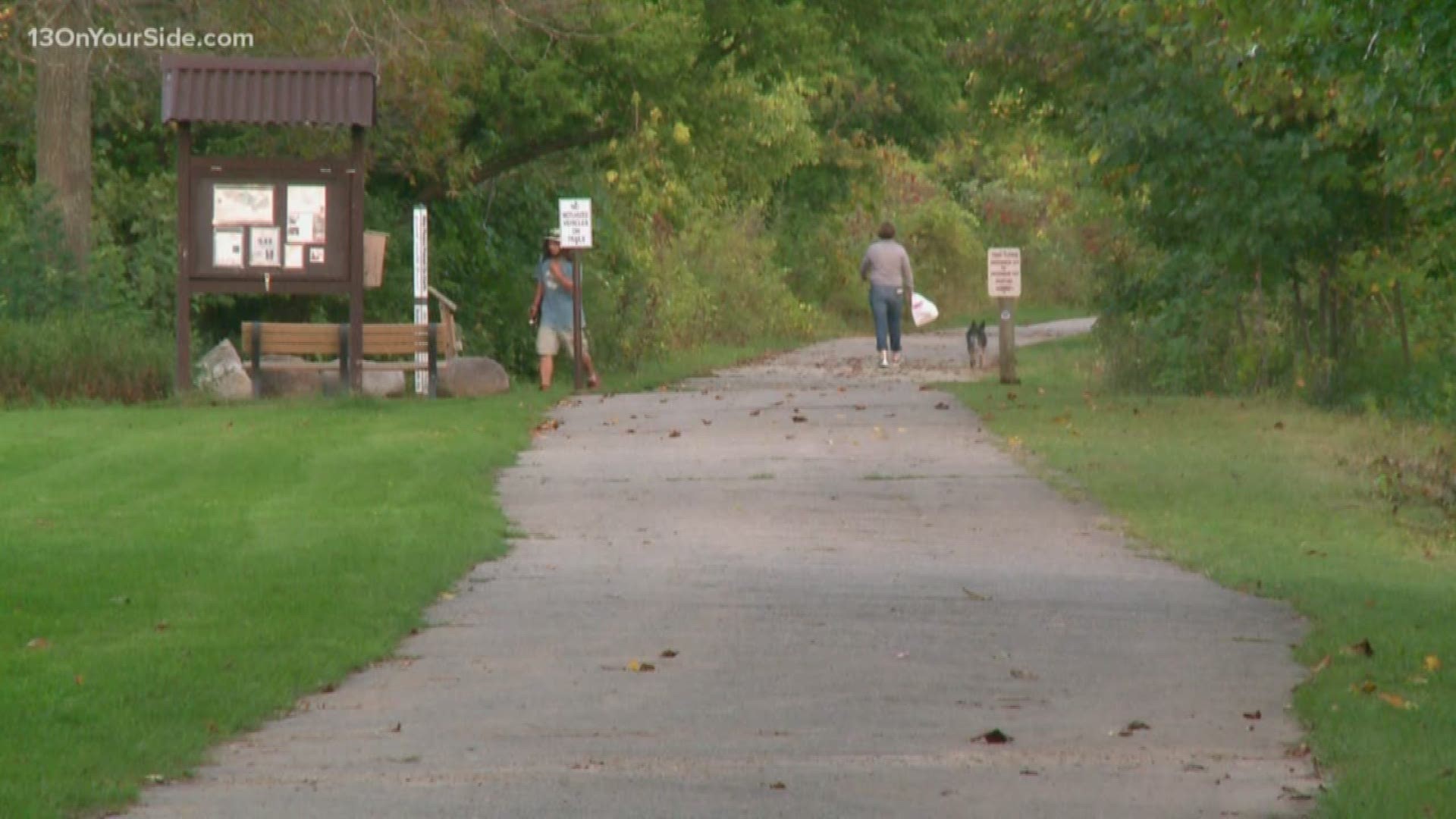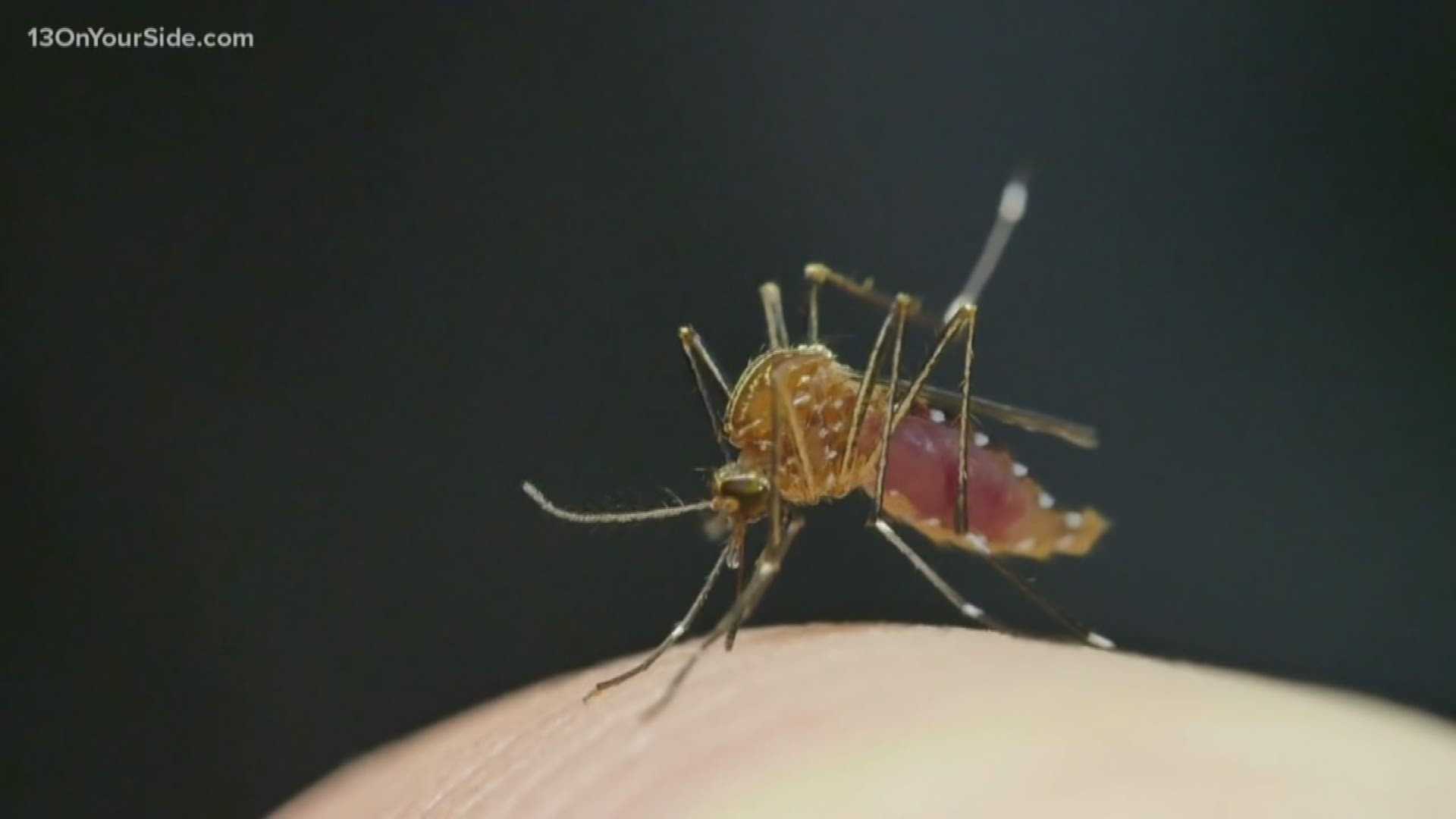LANSING, Mich. — Cases of the most dangerous mosquito-borne disease continue to crop up in southwest Michigan.
Friday, state health officials confirmed another human case of Eastern Equine Encephalitis in an adult resident of Calhoun County. There are now eight human cases of EEE across Barry, Berrien, Calhoun, Cass, Kalamazoo, and Van Buren counties.
Three of those people died from the disease.
The animal cases have also spread, with the Michigan State University Veterinary Diagnostic Laboratory identifying three new animal cases in Calhoun, Jackson and Montcalm counties.
“The increasing geographic spread and increasing number of EEE cases in humans and animals indicate that the risk for EEE is ongoing,” said Dr. Joneigh Khaldun, MDHHS chief medical executive and chief deputy for health. “We continue to urge Michiganders to protect themselves against mosquito bites until the first hard frost.”
RELATED: EEE virus: Should you be concerned?
As of Friday, there have been 21 confirmed cases of EEE in animals from these 11 counties: Barry, Berrien, Calhoun, Cass, Genesee, Jackson, Kalamazoo, Lapeer, Montcalm, St. Joseph and Van Buren. Additional animals cases are under investigation.
There is an EEE vaccine for horses, but not humans.
The Michigan Department of Health and Human Services is encouraging officials in affected counties to consider postponing, rescheduling or canceling outdoor activities occurring at or near dusk. The state says this recommendation is being made out of "an abundance of caution."
EEE has a 33 percent fatality rate in people who become ill. People can be infected with the disease from a bite of a mosquito carrying the viruses. Symptoms include the sudden onset of fever, chills, body and joint aches which can progress to a severe encephalitis, resulting in headache, disorientation, tremors, seizures and paralysis. Permanent brain damage, coma and death may also occur in some cases.
These are the tips the state is giving residents to stay safe:
- Apply insect repellents that contain the active ingredient DEET, or other U.S. Environmental Protection Agency-approved product to exposed skin or clothing, and always follow the manufacturer’s directions for use.
- Wear long-sleeved shirts and long pants when outdoors. Apply insect repellent to clothing to help prevent bites.
- Maintain window and door screening to help keep mosquitoes outside.
- Empty water from mosquito breeding sites around the home, such as buckets, unused kiddie pools, old tires or similar sites where mosquitoes may lay eggs.
- Use nets and/or fans over outdoor eating areas.
RELATED VIDEO:
►Make it easy to keep up to date with more stories like this. Download the 13 ON YOUR SIDE app now.
Have a news tip? Email news@13onyourside.com, visit our Facebook page or Twitter. Subscribe to our YouTube channel.


